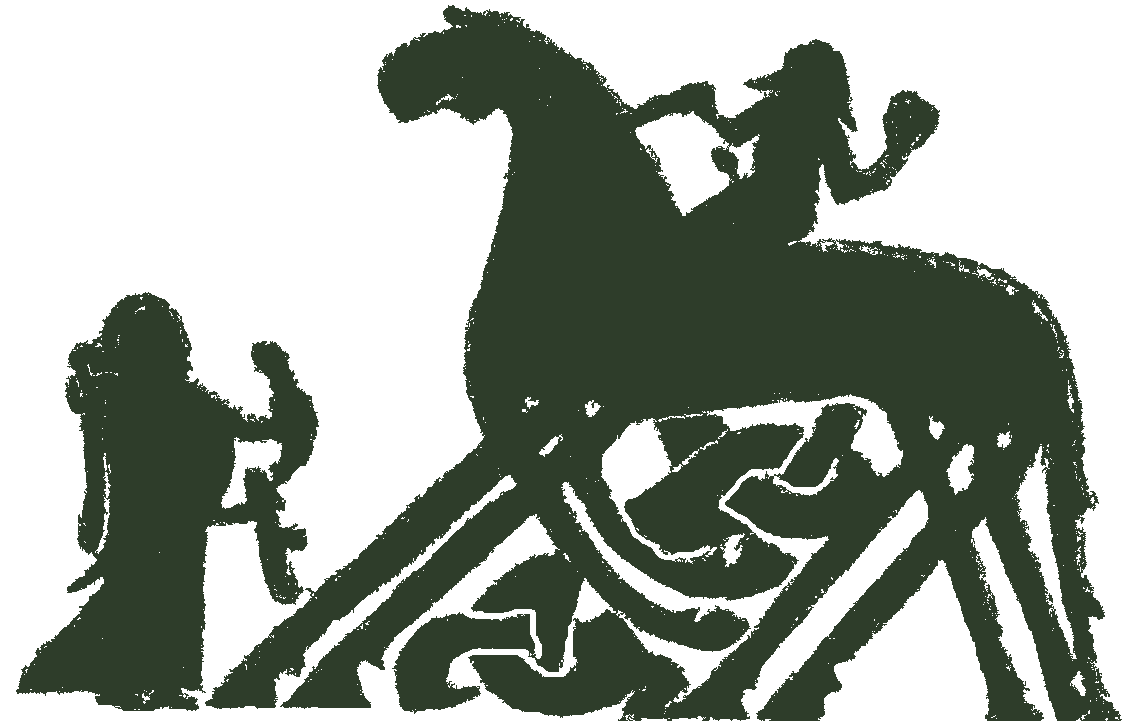in progress
Descriptions and mentions of Múspell and Múspellsheimr found in Gylfaginning.
text
Gylf ch. 4c
4c. Múspell
Þá mælti Þriðji: "Fyrst var þ... | Then spoke Third: 'But first ... |
[status: unverified copy]
Gylf ch. 5b
5b. Múspellsheimr
Þá mælti Jafnhár: "Ginnungaga... | Then spoke Just-as-high: 'Gin... |
[status: unverified copy]
Gylf ch. 8c
8c. Múspellsheimr
Þá mælti Þriðji: "Tóku þeir o... | Then spoke Third: 'They also ... |
[status: unverified copy]
Gylf ch. 13c
13c. Múspell
Er þér eigi sagt það að guðin... | Has no one ever told you that... |
[status: unverified copy]
Gylf ch. 37c
37c. Múspell
Verða mun það er Frey mun þyk... | There will come a time when F... |
[status: unverified copy]
Gylf ch. 43b
43b.
Þá mælti Gangleri: "Hvað er a... | Then spoke Gangleri: 'What is... |
[status: unverified copy]
Gylf ch. 51f
51f. Naglfari
Þá verður og það að Naglfar l... | Then it will also happen that... |
[status: unverified copy]
commentary
context
Gylfaginning, which is part of Snorra Edda, was composed in Iceland in the 13th century, and holds the stories of many of the Pre-Christian myths of northern Europe. It is believed to have been composed by the Icelander Snorri Sturlusson. Snorra Edda consists of three separate parts, Gylfaginning, Skaldskápamál and Háttatal, all functioning together as a greater work and guide for the aspiring medieval poet and storyteller.
commentary
The term ON: Muspellsheimr, EN: The world of Muspell, decribes a world of fire in the southern part of the cosmology created by Snorri in his Gylfaginning. The fires of Muspellsheimr is also vital to the creation of the primeval giant Ymir, as well as for the formation of the heavens. However, the connections to Ragnarök and the fall of the gods is also central to the role of Muspell and Muspellsheimr. Only in Gylfaginning do we find the term ON: Muspellsheimr, and it is believed that Snorri derived the name from the probable Germanic term OHG: muspille, EN: World conflagration causing the end of the world. Many variations and usages of the word is found, often connected the ON: Muspellz lýðir EN: Muspell´s people (Völuspá 51), or ON: Muspellz synir EN: the sons of Muspell (Lokasenna 42, Gylfaginning 12, 36 and 50). The meaning of this word Muspell varies, but the term seems to have strong connections of ideas of cyclical time of creation and downfall.
For more, see for example:
Simek, R. (2007), Transl: Angela Hall. Dictionary of Northern Mythology. Cambridge: D.S. Brewer. pp 222-224.
(Contributed by Liv Marit Aurdal.)
tags
Main text: Gylfaginning
Attributes: Mythological battle myth Battle Horse Ship storms, bad weather Vanir Giants Death Fire Weather Sword Ride River Æsir Vanir Creation Cosmology Ragnarök
Named things:
Text sections: SnSt, Gylf ch. 4c SnSt, Gylf ch. 5b SnSt, Gylf ch. 8c SnSt, Gylf ch. 13c SnSt, Gylf ch. 37c SnSt, Gylf ch. 43b SnSt, Gylf ch. 51f
